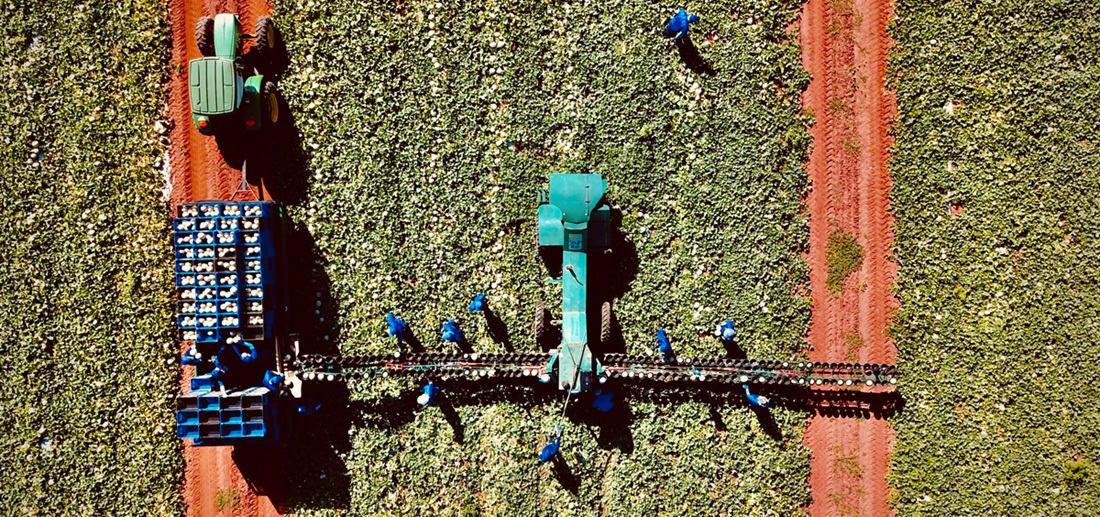
Agrícola Famosa assembles a fleet of ships to export fruit to Europe
Nov, 17, 2023 Posted by Gabriel MalheirosWeek 202342
Amid the logistical chaos caused by the COVID-19 pandemic, Agrícola Famosa, Brazil’s largest fruit exporter, spent millions of dollars to charter ships to export melons and watermelons to Europe. Although the strategy increased the company’s costs by 30%, it yielded excellent results.
As a result, the company decided to keep six chartered ships throughout the year. “It’s a project that has come to stay, ensuring a differentiator factor for our products to reach customers with high quality,” says Carlos Porro, the company’s CEO.
Thanks to this measure and the expansion of export markets, Famosa expects to generate R$ 1.5 billion this year, a 20% increase from 2022. The company also projects a 20% growth in earnings before interest, taxes, depreciation, and amortization (EBITDA) to R$ 220 million.
Famosa secured a deal with GreenSea, a joint venture between Seatrade and Green Reefers. The company operates Famosa’s ships, responsible for 35% of the volume of fruits sent to Europe. According to Porro, the remaining 250 containers per week continue to be shipped to Europe by CMA CGM, with which Famosa has maintained a contract for 25 years and has no complaints.
The ships travel between Fortaleza and the ports of Tarragona (Spain), Dover (England), and Rotterdam (Netherlands). The first GreenSea refrigerated ship set sail from the Famosa property in the capital of Ceará in August 2022.
The chart below shows containerized fruit exports (hs 0800-08012) from the Port of Mucuripe between Jan 2019 and Sep 2023. The data is from DataLiner.
Fruit Exports from Mucuripe | Jan 2019 – Sep 2023 | TEU
Source: DataLiner (click here to request a demo)
Porro did not disclose the value of the contracts, but according to him, logistics costs this year were 35% to 40% lower than in 2022. Nevertheless, they are still far from pre-pandemic levels.
The company expects to ship 9,500 containers to European countries this year, equivalent to 200,000 tons of fruit. Another 500 containers are expected to reach the United States this year. The domestic market consumes about 5,000, the equivalent of 100,000 tons.
“We have a presence in 70% of the European market, and we want to continue growing, gaining market share in Spain and Central America. We also have great potential in the US, and we will resume exploring the Chinese market, a project that was halted because of the pandemic,” says Porro.
Agrícola Famosa has 30,000 hectares in the country’s Northeast regiontry, with 10,000 hectares suitable for agriculture, producing about 200,000 tons of fruit per crop. Last year, the company generated revenue of R$ 920 million. The executive states that the performance exceeded initial expectations of around R$ 820 million.
Furthermore, Melon&Co, a company created by Famosa two years ago to operate in the UK, generated £50 million (approximately R$ 300 million). This company markets Brazilian, Central American, and Spanish fruits.
The expectation for the 2023/24 harvest is good production and high profitability. “With planting in more southern areas of the state and technology, we have been able to ensure melon and watermelon throughout the year,” says Porro.
Famosa has also begun to invest heavily in growing papayas, with 200 hectares of laboratory-selected plants. “After many tests, with 50,000 plants, we have selected the four best in taste and productivity and are cloning them for production,” says the executive. The clones, treated with a biological system, yield twice as much as plants grown from seeds.
Source: Globo Rural
Click here to read the original text: https://globorural.globo.com/negocios/noticia/2023/11/agricola-famosa-tera-frota-de-navios-para-exportar-frutas-a-europa.ghtml
-
Other Cargo
May, 14, 2019
0
Taurus banks higher export revenue in the first quarter of 2019
-
Ports and Terminals
Oct, 01, 2020
0
APM eyes Saboó container terminal as a way to expand operations in Santos
-
Economy
Apr, 13, 2023
0
China’s exports rose unexpectedly in March, first gain in six months
-
Other Cargo
Oct, 26, 2023
0
Ministry of Agriculture Launches Fertilizer Inspection Mission at Port of Paranaguá, Brazil

